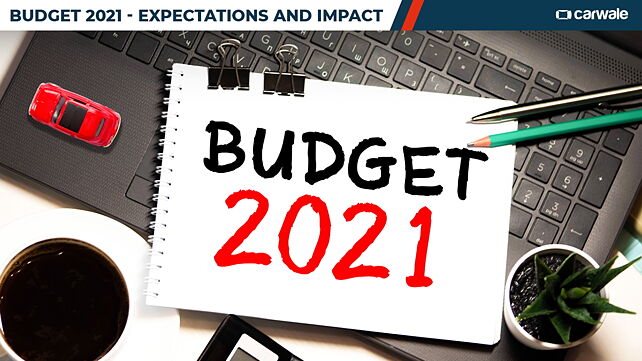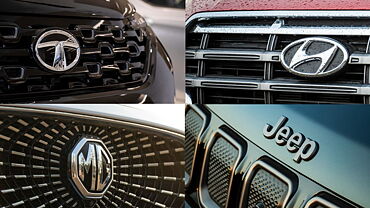
The Budget 2020 offered limited benefits to the automotive industry and encouraged localisation. Soon after the announcement, the country was hit by the global Coronavirus (COVID-19) pandemic. The lockdown announcement at the start of the financial year, followed by poor consumer sentiments, has affected the auto sector to a large extent. In view of the current situation, the auto industry expects relief from the Union Budget 2021-22.
The Federation of Automobile Dealers Associations (FADA) has put forth a set of pre-budget recommendations to help the auto sector. FADA recommends that the implementation should be focussed on incentives rather than strict mandates. The key highlights include -
Benefits of claiming depreciation on vehicles
The federation has asked the government to allow income tax payers to gain benefits of claiming depreciation on vehicles. The move is likely to encourage individuals in filing IT returns and promote growth in GST collection. Additionally, there should also be an extended depreciation period for corporates. The increase in depreciation rate for all types of vehicles which was valid till 31 March, 2020 should also be extended for FY-2021, to further boost the demand.
Reduce corporate tax for proprietary and partnership firms
Last year, the government reduced corporate tax to 25 per cent for private companies with a turnover of up to Rs 400 crore. The federation believes that the benefit should be extended to all proprietary and partnership firms as well, particularly because most traders in the auto dealership community are in this category.
Exemption of annual TCS of 0.1 per cent
The finance bill 2020 introduced TCS of 0.1 per cent on the auto dealers, applicable from 1 October, 2020. This could be a burden on the retail industry, as it blocks the working capital until the dealers receive refunds.
Incentive for vehicle scrappage policy
A robust Inspection & Certification (I & C) policy or End of Life Vehicles (ELV) policy for vehicles is the need of the hour. However, as both the above policies would take time to be effectively implemented, there is a need for an immediate scheme based on incentive for encouraging voluntary scrapping of old vehicles and replacing them with newer ones. The new vehicles are cleaner and meet stringent emission requirements.

Speaking on behalf of the apex national body of the automobile retail industry in India, Vinkesh Gulati, President Federation of Automobile Dealers Associations (FADA), said, “Honorable Finance Minister Smt. Nirmala Sitharaman has already expressed her intention to revive growth and boost investor confidence. The upcoming 2021 Union Budget should be focussed on measures to revive the Indian economy from the pandemic slowdown and boost consumption led demand. The Indian automobile industry is a barometer of the Indian economy and its revival will in turn pull up the economy. The auto retail industry is one of the key pillars of India’s growth trajectory, contributing to 4.5 million jobs. We look forward to a demand led growth oriented budget.”
Apart from the above recommendations from FADA, major car manufacturers in the country seek a reduction in road taxes and registration costs. Moreover, lucrative financial schemes and plans will further boost sales. The government needs to introduce more new schemes to promote electronics and semi-conductor manufacturing and assembly to attract foreign investment in the country.
At the same time last year, the Indian automotive industry was looking forward to the reduction in GST from Budget 2020 in order to compensate for the hike in prices during the BS6 transition, while lithium-ion battery manufacturers expected a five per cent reduction in custom duty. However, the Indian government had announced ‘handholding support’ for the Indian automotive component industry for technology upgradations, research and development, and business strategy planning.
Given the current market condition, we are hopeful that the upcoming 2021 Union Budget will see considerable initiatives to revive growth and boost investor confidence. More details will be known post the official announcement.

![Tata Nexon [2020-2023] Image Tata Nexon [2020-2023] Image](https://imgd.aeplcdn.com/272x153/n/cw/ec/41645/tata-nexon-right-front-three-quarter3.jpeg?q=80)















![Tata Nexon [2020-2023] Right Front Three Quarter Tata Nexon [2020-2023] Right Front Three Quarter](https://imgd.aeplcdn.com/199x112/n/cw/ec/41645/tata-nexon-right-front-three-quarter3.jpeg?q=80)
![Tata Nexon [2020-2023] Right Front Three Quarter Tata Nexon [2020-2023] Right Front Three Quarter](https://imgd.aeplcdn.com/199x112/n/cw/ec/41645/nexon-exterior-right-front-three-quarter-57.jpeg?q=80)
![Tata Nexon [2020-2023] Right Side View Tata Nexon [2020-2023] Right Side View](https://imgd.aeplcdn.com/199x112/n/cw/ec/41645/nexon-exterior-right-side-view.jpeg?q=80)
![Tata Nexon [2020-2023] Dashboard Tata Nexon [2020-2023] Dashboard](https://imgd.aeplcdn.com/199x112/n/cw/ec/41645/nexon-interior-dashboard.jpeg?q=80)
![Tata Nexon [2020-2023] Dashboard Tata Nexon [2020-2023] Dashboard](https://imgd.aeplcdn.com/468x263/n/cw/ec/41645/nexon-interior-dashboard-2.jpeg?isig=0&q=80)


























